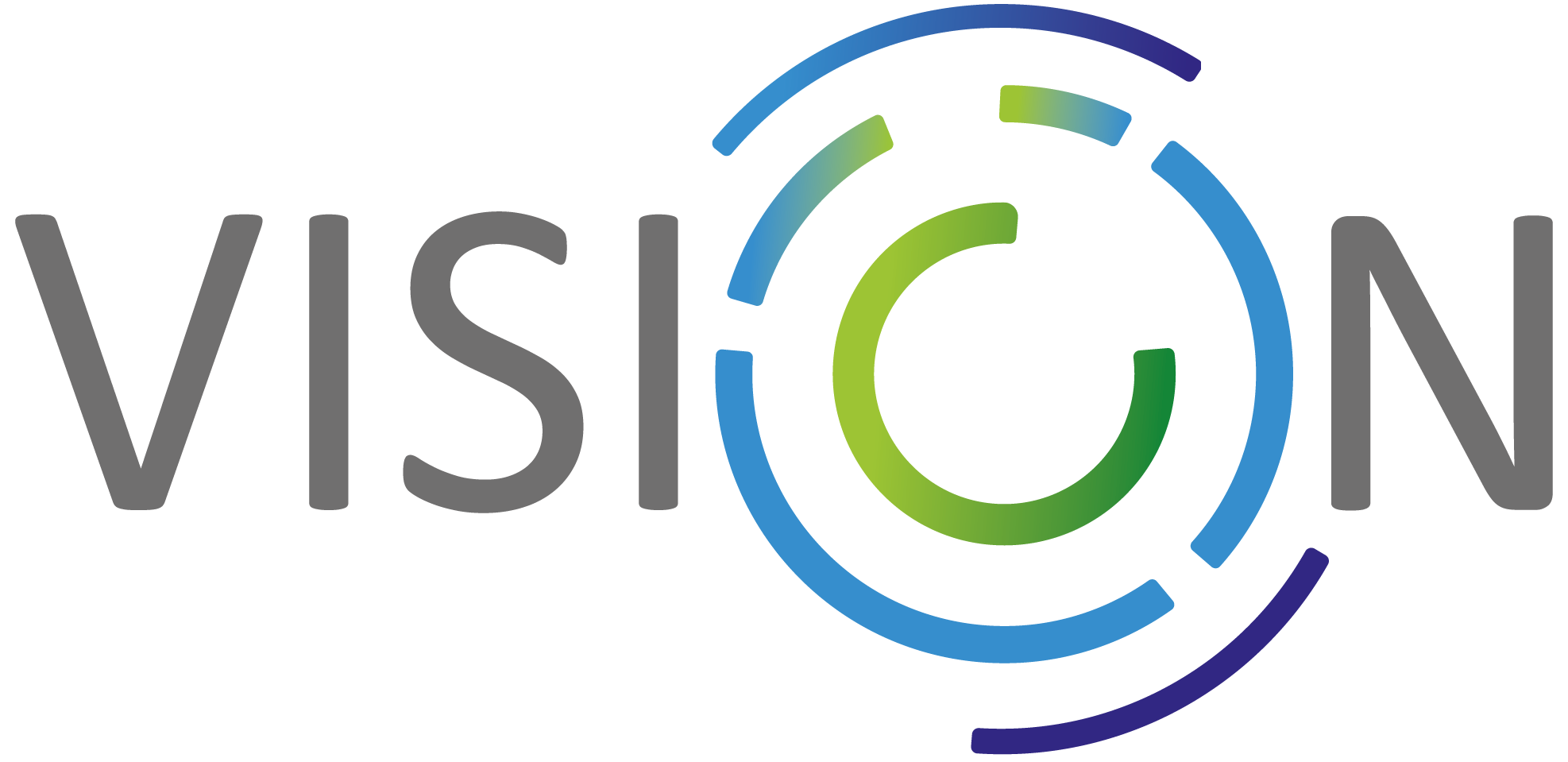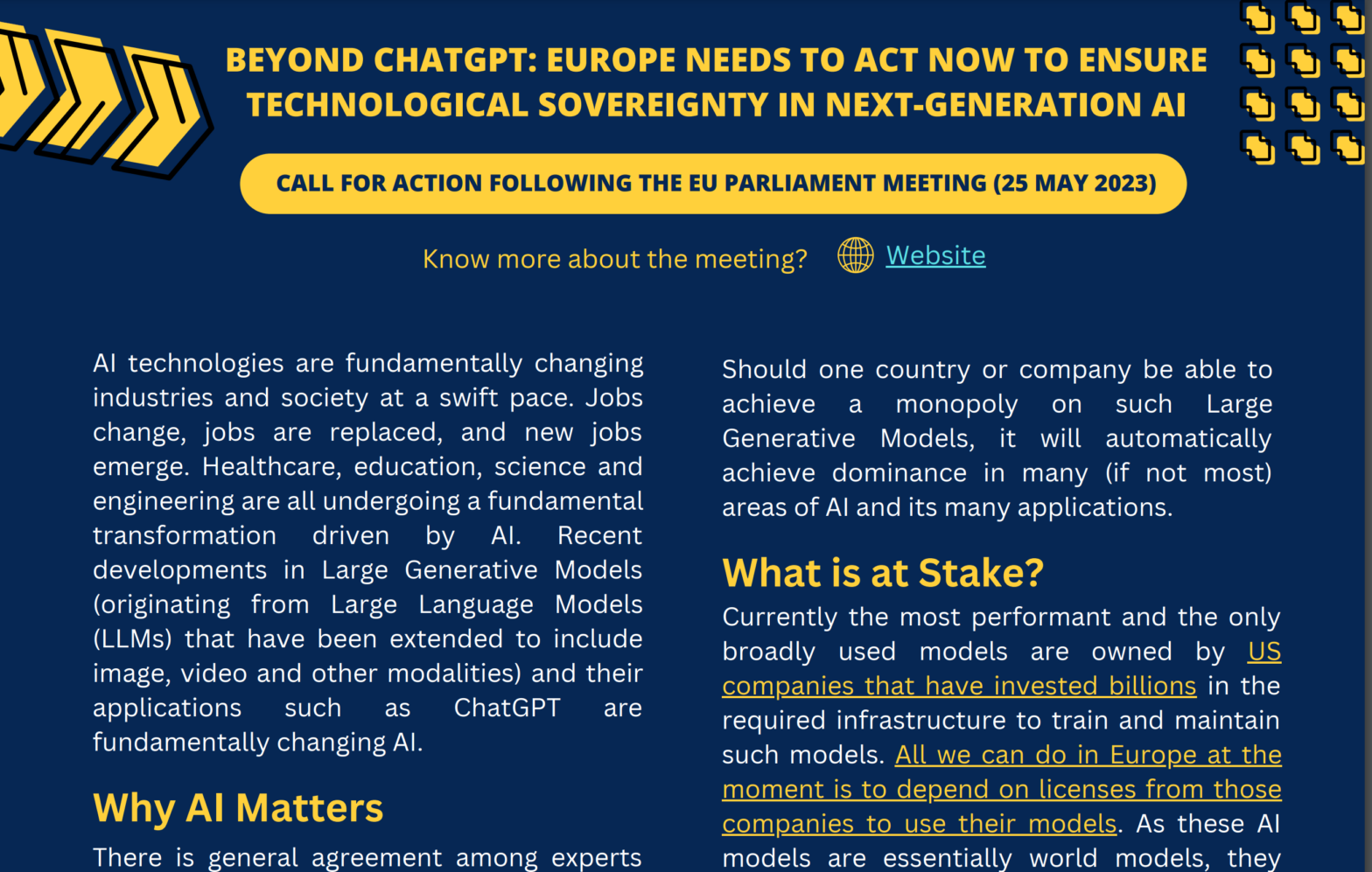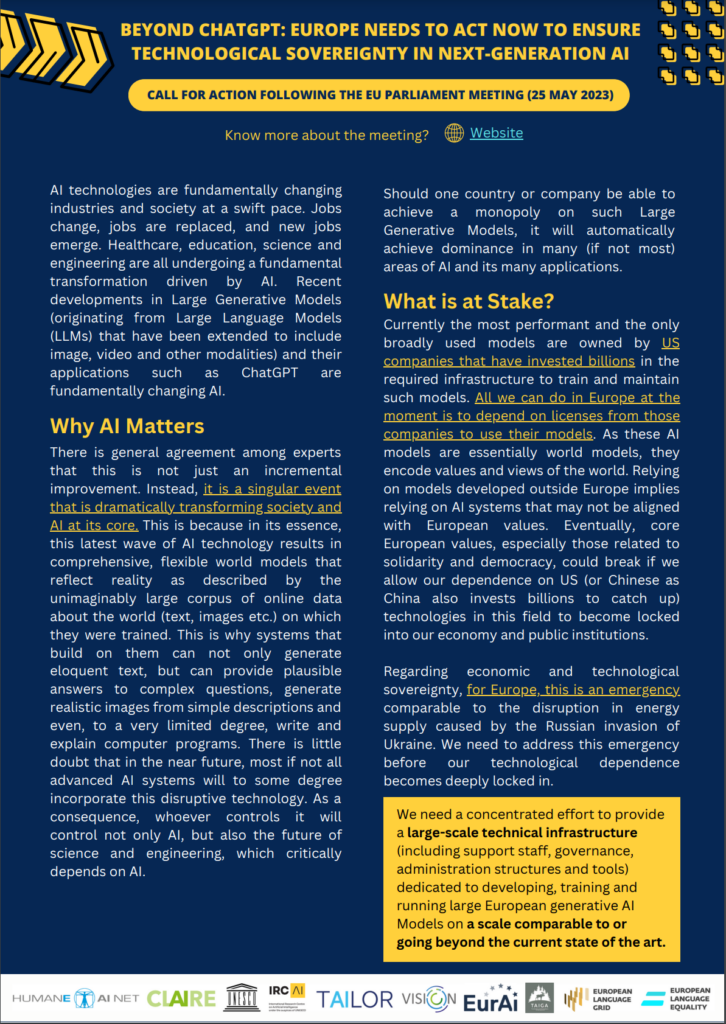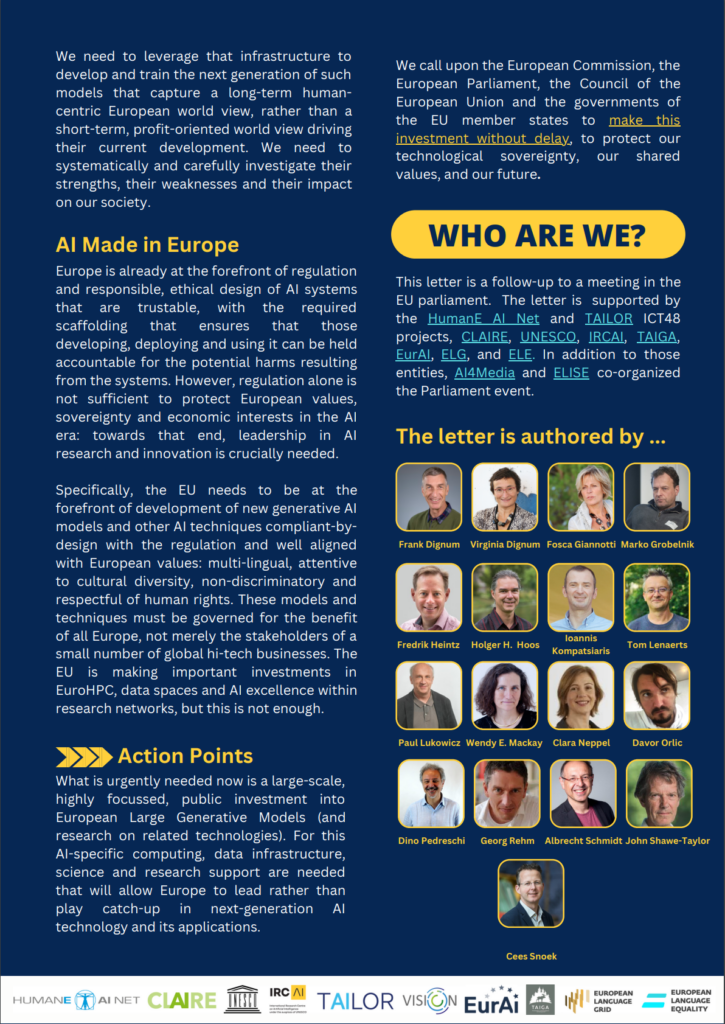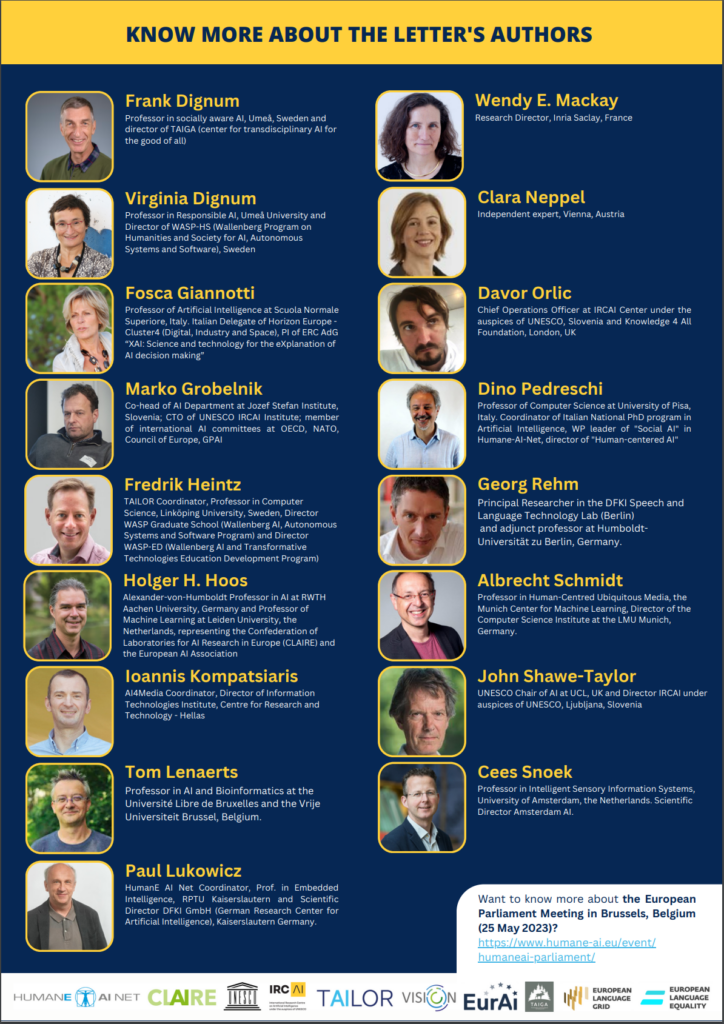Beyond ChatGPT: Europe needs to act now to ensure technological sovereignty in next-generation AI
On June 14, 2023 the European Parliament passed a draft law, the EU AI Act. This landmark legislation promotes human-centric and trustworthy Artificial Intelligence and seeks to protect health, safety, basic rights, democracy and the rule of law, as well as the environment.
Since the very first proposition of the AI Act in April 2021, the European AI community has provided its feedback. The recent developments opened the topic for additional responses from the AI community.
On May 25, 2023 the Humane-AI-Net and IRCAI hosted “Beyond ChatGPT: How can Europe get ahead in generative AI” event. The organizing committee included the HumanE-AI-Net European Network of Centres of Excellence in Artificial Intelligence the International Research Centre on Artificial Intelligence (IRCAI) under the auspices of UNESCO, the Confederation of Laboratories for Artificial Intelligence in Europe (CLAIRE), and other ICT-48 networks such as TAILOR, AI4Media, and VISION, and language projects like ELG and ELE.
The event resulted in a CALL FOR ACTION originally published on the IRCAI website – “Call upon the European Commission, the European Parliament, the Council of the European Union and the governments of the EU member states to make investments without delay, to protect our technological sovereignty, our shared values, and our future.”
What is at Stake?
Currently the most performant and the only broadly used models are owned by US companies that have invested billions in the required infrastructure to train and maintain such models. All we can do in Europe at the moment is to depend on licenses from those
companies to use their models. As these AI models are essentially world models, they encode values and views of the world. Relying on models developed outside Europe implies
relying on AI systems that may not be aligned with European values. Eventually, core European values, especially those related to solidarity and democracy, could break if we
allow our dependence on US (or Chinese as China also invests billions to catch up) technologies in this field to become locked into our economy and public institutions.
Regarding economic and technological sovereignty, for Europe, this is an emergency comparable to the disruption in energy supply caused by the Russian invasion of Ukraine. We need to address this emergency before our technological dependence
becomes deeply locked in.
We need a concentrated effort to provide a large-scale technical infrastructure (including support staff, governance, administration structures and tools) dedicated to developing, training and running large European generative AI Models on a scale comparable to or going beyond the current state of the art.
Action points
What is urgently needed now is a large-scale, highly focussed, public investment into European Large Generative Models (and research on related technologies). For this AI-specific computing, data infrastructure, science and research support are needed that will allow Europe to lead rather than play catch-up in next-generation AI technology and its applications.
Prof. Dr. Holger Hoos, Alexander von Humboldt Professor in AI; EurAI Board Member; Co-founder and Chair of the Board of CLAIRE, and VISION project PI supported this notion during the meeting itself on the grounds of European Parliament. In his closing remarks, he called for safeguarding a future in Europe “that is livable, prosperous, and not dependent on the whims of governments or players elsewhere.”
Find also on the TAILOR website, IRCAI website.
